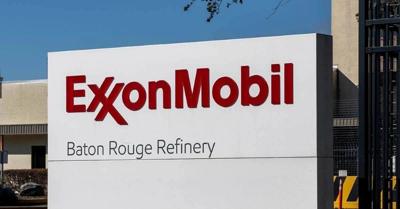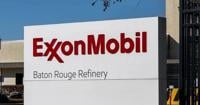
LAKE CHARLES, La. – ExxonMobil has filed a lawsuit against Allen Parish Police Jury, arguing an ordinance adopted by the local government targeting carbon capture should be declared null and void by a Louisiana federal court.
ExxonMobil Low Carbon Solutions Onshore Storage LLC filed its complaint July 1 a, Lake Charles Division. Allen Parish and Doug Hebert III, the sheriff of Allen Parish, are the named defendants.
ExxonMobil filed a verified complaint, seeking a judgment from the federal court declaring that Ordinance No. 6656 is ultra vires – or beyond Allen Parish’s legal authority – unenforceable, preempted by state law, and providing injunctive relief barring its enforcement.
“The ordinance directly conflicts and overlaps with the existing comprehensive state-and-federal regime that governs underground-injection control,” the 23-page complaint states.
“ExxonMobil therefore seeks declaratory and injunctive relief to prevent enforcement of the unlawful ordinance and allow this beneficial project to advance.”
The oil giant argues that 6656 “directly halts” development of its Class V test wells, which are permitted by the state and ready to be constructed.
The filing aims to protect two of its carbon-capture and sequestration, or CCS, projects – Hummingbird and Mockingbird – planned for Allen Parish.
“ExxonMobil has invested years of scientific study and millions of dollars so that Louisiana manufacturers can ship lower-carbon products, Louisiana can attract new manufacturing facilities interested in producing such products, Louisiana communities can earn new tax revenue, and landowners can receive a new revenue stream associated with their property rights, in many cases in the form of millions of dollars in lease payments, storage fees, and easement payments,” the complaint states.
ExxonMobil explained that the projects will capture industrial CO2, transport it by pipeline, and store it about 1 mile beneath impermeable rock – using “proven” technology that has existed for decades, it noted. This removes greenhouse gas emissions, and safeguards drinking water sources and wetlands, the company said.
State regulators, the filing states, already have issued approval letters for the first exploratory Class V test wells at both the Mockingbird and Hummingbird sites after finding that ExxonMobil “met the interim requirements for permitting” and that drilling may proceed under strict environmental safeguards.
“Class V test wells are critical to gathering information for ExxonMobil’s project, as they provide necessary injectivity testing data (among other subsurface data),” the complaint states. “No CO2 injection will occur unless and until ExxonMobil later elects to move forward with the project, after obtaining and analyzing information from the Mockingbird and Hummingbird Class V injection test wells, and after ExxonMobil receives a corresponding Class VI permit from the Louisiana Department of Energy and Natural Resources (LDENR) that authorizes CO2 injection activities.”
The Allen Parish ordinance, ExxonMobil contends, requires a Parish permit in addition to the already-issued LDENR permits. It also contains “extremely onerous” application procedures and permit requirements, the company argues.
“Further, Ordinance No. 6656 is drafted such that the Parish has complete discretion over whether a permit ever issues and is under no timeline to do so,” the complaint states.
“In fact, ExxonMobil’s permits for construction of the Class V wells require ExxonMobil to complete construction of the Class V wells by June 23, 2026, a deadline ExxonMobil risks missing due to the uncertain and unconstrained process mandated by the Allen Parish ordinance.”
Allen Parish held a public hearing and adopted its so-called “Injection Well Ordinance” on May 5. However, no final version of the ordinance has been made publicly available, ExxonMobil claims. Indeed, an online search of the government’s current ordinances by The Record shows no record of 6656.
Also at the May 5 meeting, Allen Parish requested an expedited attorney general opinion regarding the legality of 6656.
However, the attorney general’s office “had not yet opined” on the local government’s authority as of June 22, when the ordinance became effective, ExxonMobil noted in its filing.
“Police Jury has exceeded its limited statutory powers to enact ordinances set forth in La. R.S. 33:1236, provided a redundant permit and regulatory scheme to the powers that Congress vested in the U.S. Environmental Protection Agency under the Safe Drinking Water Act and that the Legislature delegated to LDENR and other state agencies,” the complaint states.
“Were Ordinance No. 6656 to be held valid and enforceable, the State, industry, administrators, public, communities, and all stakeholders would be expected to collectively navigate not only State law governing injection wells, but potentially 64 differing local ordinances across Louisiana’s 64 unique parishes.
“Such parish-by-parish navigation of carbon storage and carbon injection rules is plainly contrary to the Legislature’s statement that it is Louisiana public policy to have a ‘coordinated statewide program’ for these activities.”
ExxonMobil also noted in its filing that it has already spent more than $75,000 on route surveys, engineering work, and procurement for its pipeline project in Allen Parish. It contends it cannot recoup those costs unless the federal court nullifies 6656.
“If ExxonMobil cannot proceed with its permitted construction, it will also forfeit well over $75,000 in additional capital committed to the project,” the complaint states.
“Only a declaration of invalidity and an injunction against enforcement can safeguard ExxonMobil’s contractual rights, customer obligations, State regulatory approvals, and the public benefits that will flow from the project.”
According to an article in the American Press last week, a member of the Allen Parish Policy Jury said it still has yet to receive a response from Attorney General Liz Murrill on 6656. The Lake Charles-based publication said jurors are expected to call for a public meeting next month to rescind the ordinance.
Jones Walker LLP, one of the largest law firms in New Orleans, is representing ExxonMobil.




